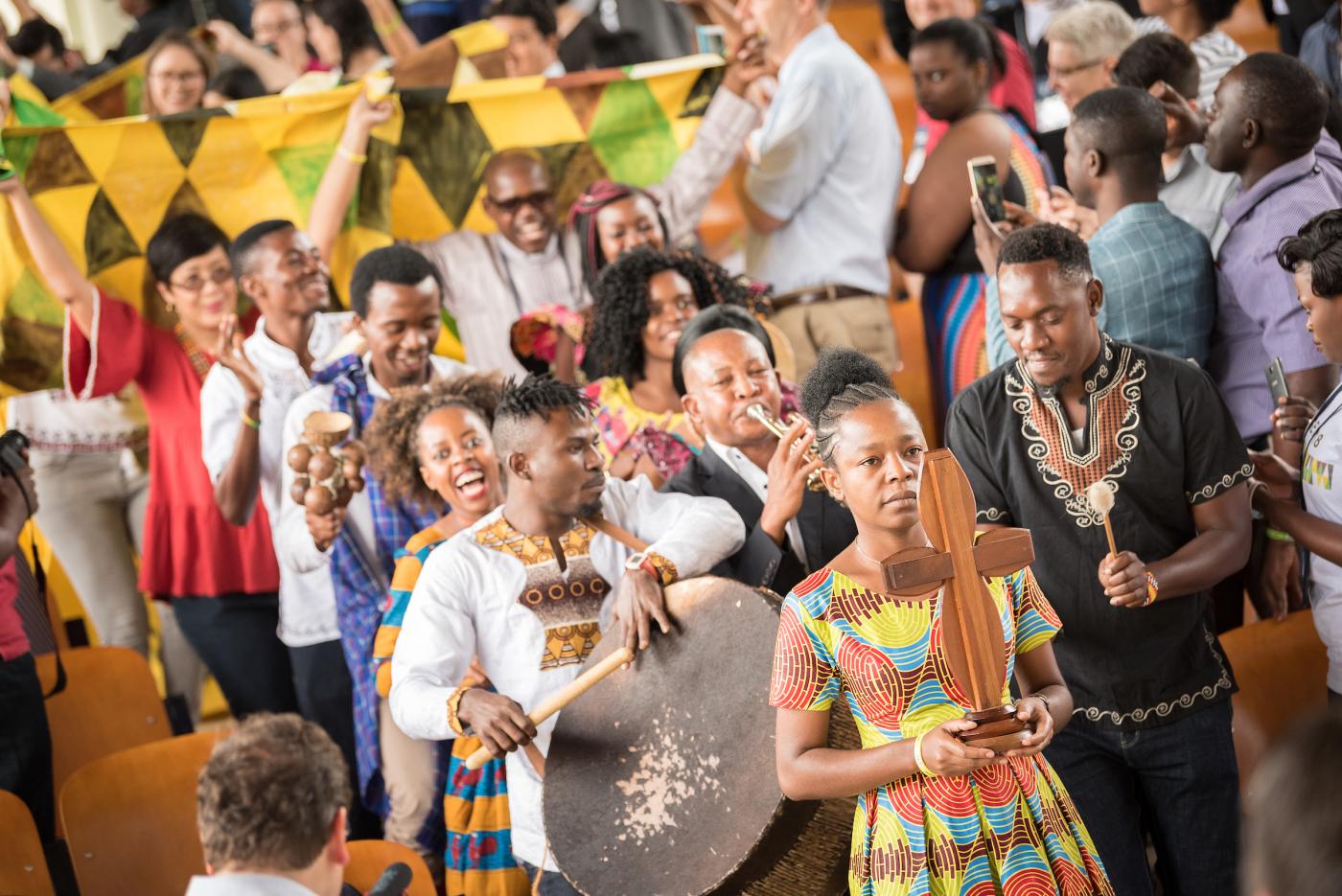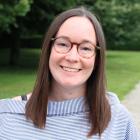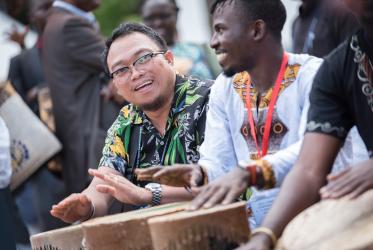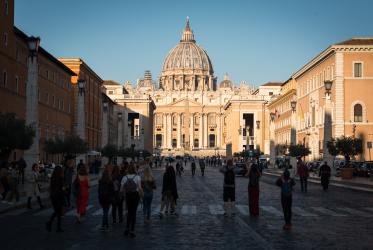I chose to study theology in order to understand how it is that people could speak differently about Christ. During the first three years of study in the Protestant Faculty of Geneva, I learned about Reformed theology and its expression throughout church life.
At that point of my theological pilgrimage, I saw a Facebook post on the World Council of Churches page. My heart burned with the desire to live the GETI2018 experience. It was an opportunity to learn about other ways of living the Christian faith! I rejoiced in the idea of meeting theologians from all around the world.
Before GETI2018, I met ten other young theologians during the e-learning phase. This group became my study group. In the course of this first step, we got acquainted with the World Council of Churches and the Commission on World Mission and Evangelism’s current theologies. During this e-learning phase, I realized the abundance of ongoing theological reflections in the world. Contextual theology and missiology are at the centre of the ecumenical world and I understood them as bridges between theology and churches’ actions in the world.

When we arrived in Tanzania for the ten days of the GETI2018 programme, I met many more young theologians eager to discover the diversity within the church. We had four days together with study sessions and prayers. These first days were enriching as great ecumenical and contextual theologians talked in plenaries. I describe these days as the building of our ecumenical kitchen.
The next six days, we participated in the Conference on World Mission and Evangelism with church representatives from all around the world. Through this conference, the participants nurtured a deep desire to participate in the transformation of the church for the pilgrimage towards justice and peace. I felt that the conference was a living room, while the GETI programme became the ecumenical kitchen. In the conference’s plenary and Bible studies, we listened to and learnt a lot from plenary sessions, but the real conversations happened within our study groups. As young theologians, we shared about what we learned and reflected together on our new knowledge on how to be ecumenical disciples in our own contexts.
Coming back to Switzerland after this experience, I knew my heart was transformed forever. The final assignment for GETI2018 was a writing assignment where I shared my experience and what I realized to be my calling in the church.
The GETI2018 experience was a life-changing event as it revealed my ecumenical heart. Since then, I have finished my masters degree with a focus on ecumenism at the University of Geneva. Then, I went on to do the masters of advanced studies at the Ecumenical Institute of Bossey. I am currently doing a doctorate with the Ecumenical Institute of Bossey and the University of Geneva. My research is on the relevance of an ecumenical ecclesiology for the Reformed Church in Switzerland, in seeking to rediscover the communal element in the Reformed tradition.
Through this short testimony of my theological journey, I hope and pray that those planning to attend GETI2022 will find inspiration and seize the moment to live out the GETI2022 experience. It might just be the key moment you need in your theological pilgrimage.
Applications are open for the upcoming Global Ecumenical Theological Institute next year (GETI 2022): https://www.oikoumene.org/news/applications-open-for-global-ecumenical-theological-institute-2022-christs-love-removes-borders
GETI 2022 will take place in connection with the World Council of Churches' 11th assembly in Karlsruhe, Germany, and the application deadline is 15 October 2021: https://wcccoe.recruiterbox.com/jobs/fk0ucpe/







